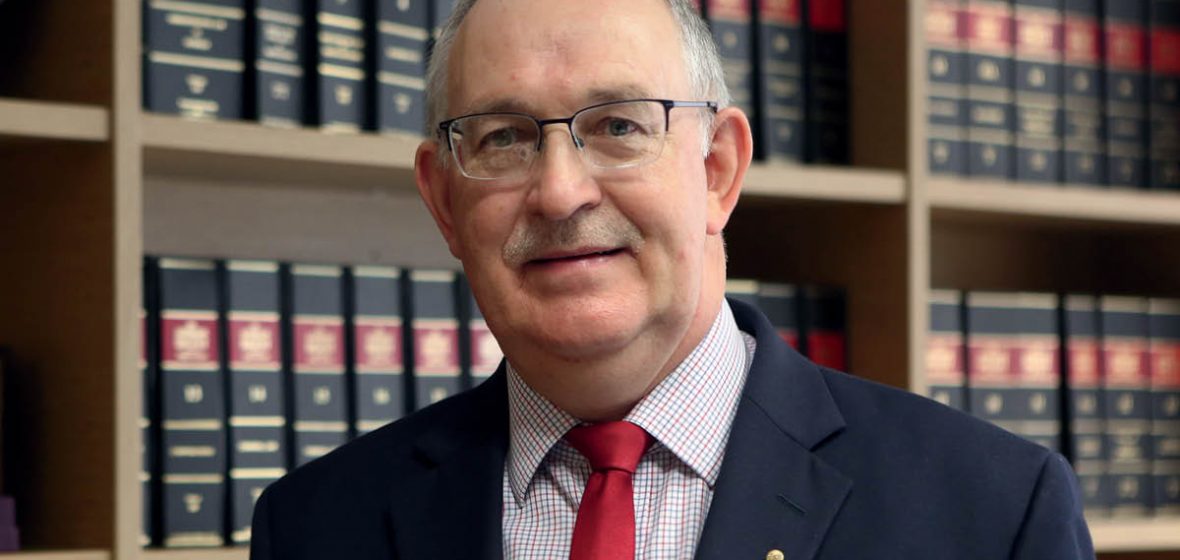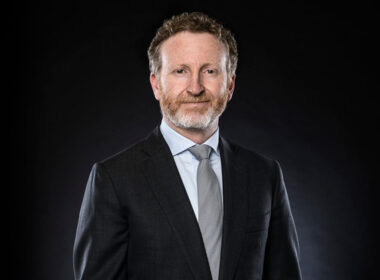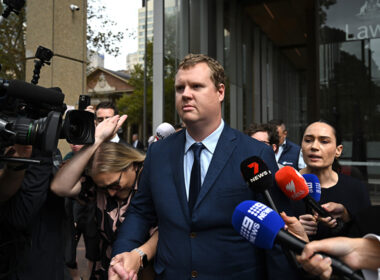After a long career in government service including a decade running the criminal law practice at Legal Aid, new Law Society President Doug Humphreys has his eye on some key changes.
Humphreys is the first to admit his working class family in Bathurst NSW was surprised that he aimed to study law. It was 1976 and UNSW was proudly sending its first group of law graduates into the workforce when Humphreys, a country kid with four siblings, enrolled to study commerce/law and signed up for the Army Reserve to make ends meet.
“I chose law because it was a pathway I was interested in and would give me opportunities to get ahead,” he said. “I added commerce in case I didn’t like law and wanted to work as an accountant.” Service to the community has been a tradition in his family. Humphreys, 60, grew up in the Bathurst fire station because his father, Kevin, manager of a tyre and rubber company, was the resident volunteer. His grandfather, Joseph, served at Gallipoli and the Western Front and met his wife when he was recovering from injuries before he was discharged.
After university, Humphreys joined Peter and Crompton, a small Sydney law firm with three partners, and did general litigation and legal aid crime cases in the District and Supreme Courts. Three years later, in 1984, he took a position doing duty court work at the then Public Solicitors. He went on to be Director of Criminal Law Branch at NSW Legal Aid for a decade. He also spent three years in the Mental Health Advocacy Service, doing forensic and civil committal work and seven years as Principal Registrar Administrative Appeals Tribunal. In 2010, he became Principal Member of the Veterans’ Review Board.
“My career has been essentially in government service and that is unusual,” Humphreys said, adding that he is proud to be an active member of the Army Reserve. “Even now, I am a duty solicitor at heart. You are seeing people and assisting them when they are at their most vulnerable and when there is a capacity to make a big difference to their life.”
Humphreys has served on the Law Society Council since 2009 and said one of his key aims as President was to boost legal aid funding and improve the legal aid rates of pay for private solicitors.
“I want to see what we can do to boost the fact that the profession contributes so much to the community through heavily discounted legal aid work,” Humphreys said. “If they weren’t prepared to do that, the justice system would fall over.”
Other concerns include court delays and resourcing and pushing for the appointment of more solicitors to the bench.
“If you ask me what is a vote winner, my answer is there is a general requirement for people to have faith that we have a fair and just system,” he said. “When you start talking about three- and four-year delays in the Family Court, the system is no longer fair.
“It costs about $120,000 per year to keep somebody locked up on remand. Every time we lock somebody up for a year longer than they might otherwise have been, we are denying ourselves the cost for a nurse, paramedic, firefighter or school teacher.
Another key initiative is to review the Society’s wellness programs and improve services for members.
“We are a voluntary professional organisation and we need to be the place where there is no wrong door for our members,” he said. “We are not a provider of wellness services, but we can send solicitors off to professional services with people who get what it means to be a lawyer, the pressures of being a lawyer, and tailor the services to their needs.”
The first step is Humphreys’ choice of President’s charity, the Butterfly Foundation – an advocacy group for people with eating disorders.
“Eating disorders are a form of mental illness. It is not well known, but anorexia nervosa has the highest mortality rate of any mental illness.”




